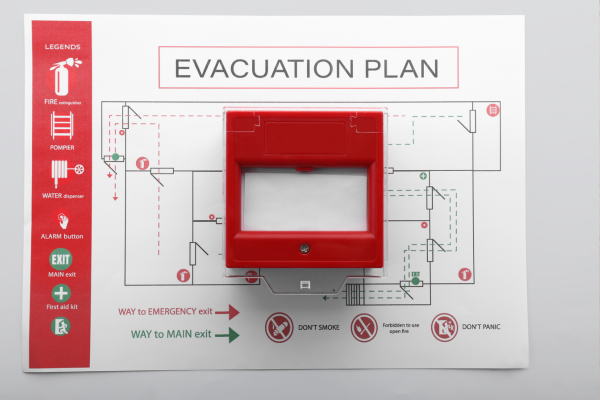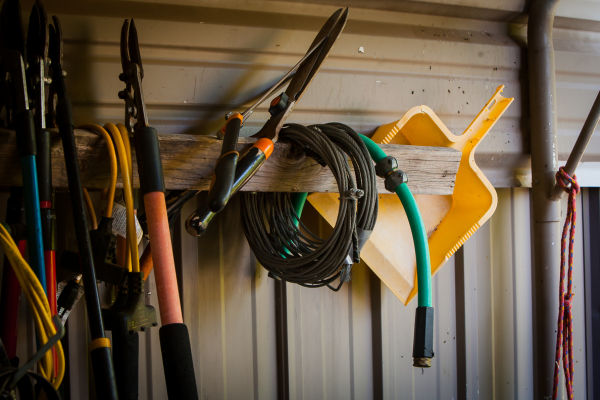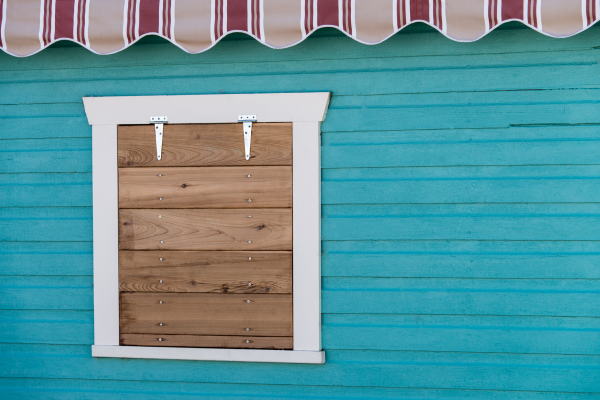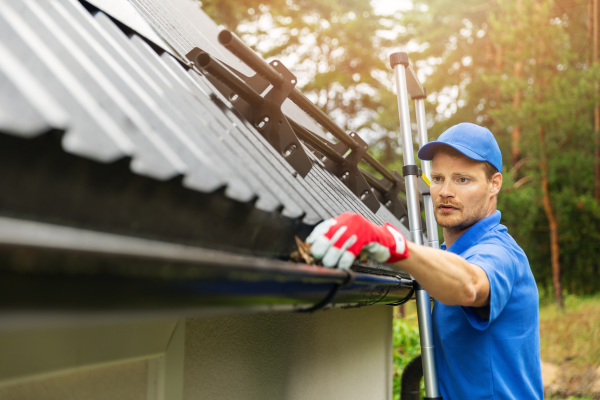Hurricane season brings a unique set of challenges for homeowners, making thorough preparation essential. This comprehensive guide outlines the crucial steps to ensure safety and minimize damage. From creating an evacuation plan to reviewing insurance coverage, the focus is on proactive measures. Understanding these steps not only helps in safeguarding homes but also provides peace of mind during the turbulent hurricane season. Embracing these practices can significantly reduce the risks associated with these powerful storms.
Contents
Create An Evacuation Plan

Developing a detailed evacuation plan is a critical first step in hurricane preparedness. This plan should include identifying safe destinations and determining the most efficient evacuation routes. Additionally, it is important to consider alternate routes in case the primary path is inaccessible. Factors such as distance, travel time, and the likelihood of route congestion should be thoroughly evaluated. This ensures that when a hurricane warning is issued, there’s a clear, actionable plan to follow.
Communication is a key component of any effective evacuation plan. It is crucial to ensure that every family member understands the plan and knows what to do in case of an emergency. This includes establishing a meeting point in case members are separated and designating a relative or friend as a point of contact outside the hurricane zone. Practicing the evacuation plan, especially with children, helps familiarize everyone with the process. Additionally, special considerations should be made for pets, ensuring their safety and accommodation in the evacuation process.
Review Your Insurance Coverage

Understanding insurance coverage is vital in preparing for hurricane season. It’s important to review the policy details to ensure adequate coverage for hurricane-related damages. This involves checking for specific clauses that cover wind damage, flooding, and other storm-related incidents. Many homeowners find themselves underinsured, a situation that becomes apparent only after a disaster strikes. Consulting with an insurance agent to clarify coverage limits, deductibles, and exclusions is a prudent step.
Updating insurance coverage is equally important. This might involve increasing coverage limits or adding new policies for comprehensive protection. Documenting property and valuable belongings is also crucial. Taking photos or videos of the home and its contents provides a visual record for insurance claims. Keeping an inventory of valuables, along with purchase dates and prices, aids in a smoother claims process post-hurricane. It’s about ensuring that, in the aftermath, recovery and compensation are as straightforward as possible.
Trim Trees And Shrubs

Overgrown trees and shrubs can pose significant risks during hurricanes. Their large branches can become dangerous projectiles, and weak trees may fall, causing damage to property and power lines. Therefore, it’s essential to regularly trim and maintain these plants. The focus should be on removing dead or weak branches, thinning dense canopies, and ensuring that trees are healthy and structurally sound. This not only reduces the potential for damage but also promotes the overall health of the vegetation.
Best practices in trimming involve more than just cutting back branches. It’s important to assess each tree’s unique structure and growth pattern. Professional arborists can provide expertise, particularly for large or potentially hazardous trees. Regular maintenance throughout the year, not just before hurricane season, can prevent the need for extensive and rushed preparation. Additionally, properly disposing of trimmed branches and debris is crucial to prevent them from becoming windborne hazards during a storm.
Secure Loose Outdoor Items

Loose outdoor items can become dangerous in high winds, turning into projectiles that threaten both property and personal safety. Furniture, garden tools, and decorative items should be secured or stored inside. For heavier items that cannot be easily moved, like patio tables or grills, secure anchoring systems should be used. This preparation step is often overlooked but is critical in minimizing potential damage from flying objects.
For larger items like sheds or gazebos, ensuring they are firmly anchored to the ground is essential. In some cases, it may be necessary to reinforce these structures with additional supports or straps. Checking these fixtures regularly for signs of wear and tear and making repairs as needed is a part of routine maintenance that becomes particularly important as hurricane season approaches. Simple steps, like tightening bolts and securing roofs, can make a significant difference in a storm’s impact.
Reinforce Doors And Windows

Doors and windows are vulnerable points in a home during a hurricane. Reinforcing them can significantly reduce the risk of damage. Storm shutters are one of the most effective ways to protect windows and glass doors. These can be permanent fixtures or temporary solutions installed before a storm. For those in high-risk areas, investing in impact-resistant windows and doors offers an additional layer of protection.
Temporary solutions, like plywood covers, can be effective if installed correctly. It’s crucial that these covers are cut to fit each window and door precisely and are securely anchored to the structure. Regular inspections of existing protections, such as checking the integrity of shutters and ensuring they operate smoothly, should be a part of pre-hurricane preparations. Remember, the goal is to create a barrier against the high winds and flying debris common in hurricanes.
Clean Gutters

Gutters play a crucial role in managing heavy rainfall during hurricanes. When gutters are clogged, water can overflow, potentially causing damage to the roof, walls, and foundation of a home. Before hurricane season, it’s important to thoroughly clean gutters and downspouts. This ensures that water can flow freely away from the home, reducing the risk of water damage.
In addition to cleaning, inspecting gutters for damage or wear is crucial. Look for signs of sagging, holes, or leaks and make repairs as necessary. Installing gutter guards can also be a beneficial step, as they help keep debris out, reducing the frequency of cleanings. Regular maintenance of gutters not only prepares a home for hurricane season but also contributes to the overall well-being of the property.
Prepare An Emergency Kit

An emergency kit is a cornerstone of hurricane preparedness. It should contain essentials like non-perishable food, water, a first-aid kit, flashlights, batteries, and important documents. Consider the specific needs of all family members, including prescription medications, baby supplies, and pet needs. The kit should be easily accessible and stored in a waterproof container.
Regularly updating the emergency kit is as important as creating it. Check expiration dates on food and batteries, and replace items as needed. Ensure that documents are up-to-date and consider including a list of emergency contacts and local shelters. Having a well-prepared emergency kit can provide invaluable support during and after a hurricane, especially in situations where access to regular supplies is cut off.
The Bottom Line
Preparing for hurricane season is a multifaceted process that involves both immediate actions and ongoing maintenance. From securing property to ensuring personal safety with a well-stocked emergency kit, each step plays a crucial role in mitigating the risks associated with these powerful storms. Taking these preparations seriously can not only protect homes and belongings but also save lives. As the hurricane season approaches, it’s the collective responsibility of individuals to take proactive steps, ensuring they are as prepared as possible for whatever the season may bring.


